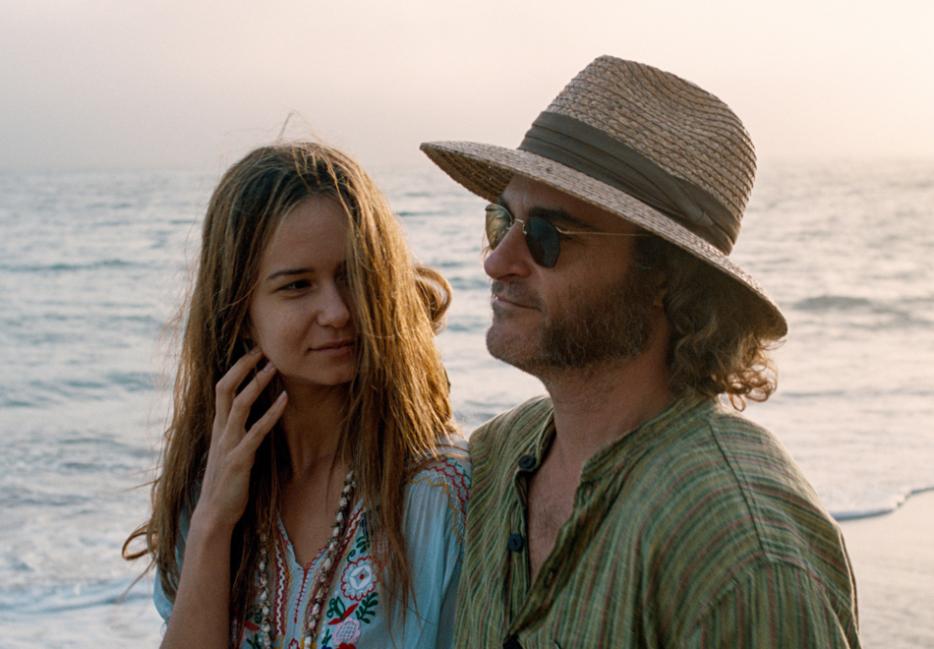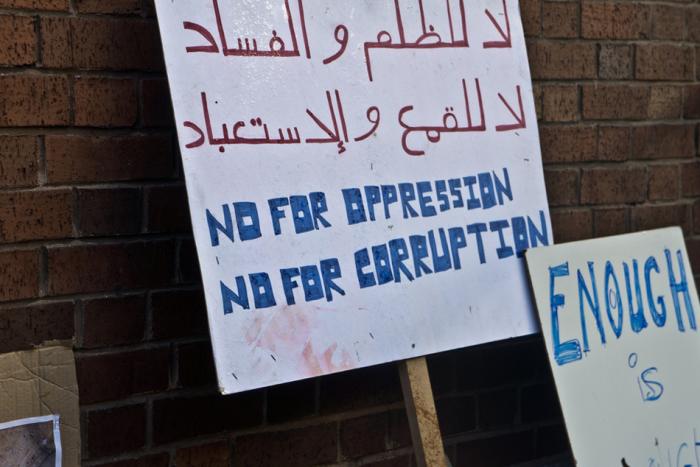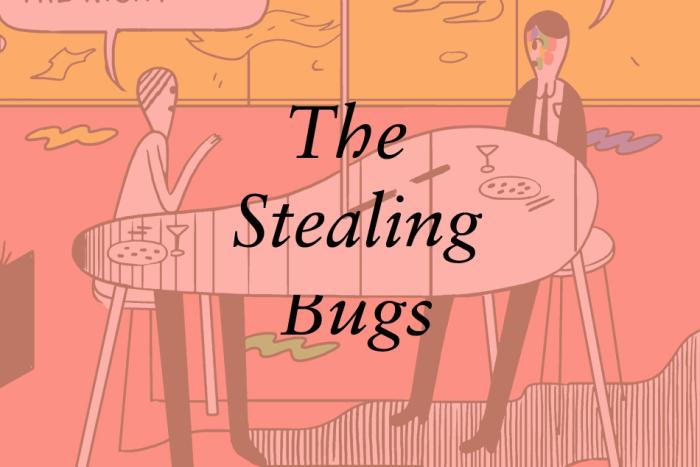In Book Two of My Struggle, Karl Ove Knausgaard writes about (among many many other things) writing Book One of My Struggle. Fair enough: write what you know. I have not worked far enough into Book Three to find out if he writes about Book Two, or about writing the proposal for Book Four, but there is already the sense that Karl Ove is having us on. Still, it’s good stuff, oddly compelling for its lack of plot and drama: My Struggle is a life story in all its banality cast as a mega-novel. There are no car chases, but diapers are changed and kitchens are scrubbed.
Not long ago it was fashionable for novels to trace the disintegration of the self. The late masters, Thomas Pynchon and David Foster Wallace, dropped characters like sugar-doped kids into mirrored funhouses to see if they could make their way out on wits and sheer luck. In Pynchon’s Inherent Vice, now adapted to film by Paul Thomas Anderson, we get Doc Sportello, who solves cases as if by accident while hopelessly high and irretrievably lost. With Wallace we get Hal Incandenza in Infinite Jest, a pre-millennial Hamlet swamped by culture into a state of permanent indecision. In both cases there are car chases. In both cases the world is an electric mess, and freedom, or any sense that one is in charge of one’s own life, is out of the question. Hal and Doc are pawns in a bigger game.
Then everything changed, and Knausgaard is the most obvious example of the shift. The Struggle books are fictional memoir, or autobiographical epic storytelling, or some suitable hybrid. They are well crafted accounts of life as Knausgaard has lived it, the story of writing books and getting drunk and bringing up children and losing parents and working at a marriage. “I have always wanted the bourgeois lifestyle,” he writes in Book Two. “Always wanted the properness.” The series is about the search for and acquisition of a specific properness, hence the title: it is his struggle, not yours or mine, although we may hear resonant notes. It is his struggle to be normal, not overwhelmed by the storm outside as depicted in Pynchon and Wallace. Karl Ove’s books are about being in charge of his own life, not in the self-help, master-of-destiny way (which presupposes that there can be order in life) but in a calm, resilient, and ultimately socially disengaged way: if the world is an electric mess, Knausgaard prefers not to notice. He has dinner parties to attend.
Now the floodgates open. Memoir-fiction and the heroics of the banal becomes a thing. Rachel Cusk’s new novel, Outline, is, judging by the New Yorker review (I haven’t read the book), the story of a playwright with writer’s block who has grown tired of the contrived architecture of modern fiction, with its arbitrary plotting and contrived crises. She just wants to write about life as it’s to be lived, in conventional safety, the American dream of attempted properness. Ben Lerner’s latest novel is about writing a book based on a New Yorker story that Ben Lerner wrote (the actual New Yorker story is in the book) and mostly takes place in Ben Lerner’s head as he reflects on what art means, and what it takes to write a book based on a New Yorker short story.
It’s worth asking: if these books hew so closely to the inevitable drone of everydayness, why are they so good? It’s because, unlike their manic predecessors, with all their elaborate connections and networks of causality, Knausgaard and Lerner accept that shit just happens, mostly by chance. We are not pawns in some bigger game. There is no game, just an ongoing parade of blind circumstance: we have as good a chance as the next guy of coming out alive and unscathed, as long as we’re not hit by a bus or an overhead piano. The fiction-memoir is boring on purpose, to demonstrate that we, too, can be blessed with an uneventful life.
There are plenty of predecessors in the shit-happens literary genre, going back to The Life and Opinions of Tristram Shandy, which is all digression and circumstance, an autobiographical account in which the author’s birth doesn’t happen until Volume III because too many other random details get in the way. But there’s an outlier, a little known Russian novel (little known until Pushkin Press released it last year in translation) called The Spectre of Alexander Wolf by Gaito Gazdanov which is intensely concerned with chance, fate, and the impulse to lead an uneventful life.
Gazdanov was born in 1903 in St. Petersburg and fought with the White Army in the Civil War, after which he moved to Paris and began to write. Alexander Wolf was published in 1948, but follows the story of a solider in the White Army, in Paris, in the years after the Russian Civil War. He works for a newspaper writing obituaries, crime stories, reports on boxing matches; meets a woman and falls in love, or as close to it as he can imagine; he aspires to a quiet life, but is haunted by his wartime experience. He is sure that he killed a man. “Of all my memoirs, of all my life’s innumerable sensations,” the book opens. “the most onerous was that of the single murder I had committed.” But through a strange series of coincidences he will soon come face to face with his victim, Alexander Wolf, alive and well and also in Paris.
Wolf explains that, since his brush with death on the battlefield, he has been reborn: life now makes sense. Everything is pre-determined, death is inevitable and happiness is impossible. In some prisons, he explains, the jailed are allowed to wander the town in street clothes, meet people, eat in a restaurant or go to the theatre, on a bond of honour that they will return at sundown. “They dress like everyone else,” he says, “but they’re different, aren’t they? I’ve been let out for a certain time, but I can neither think nor live as everyone else does, because I know what awaits me.” Wolf believes in fate, in being a pawn in someone’s game.
The narrator doesn’t agree. He recalls the words of one of his teachers: “We are given life with the vital stipulation that we defend it to the last breath.” For him, joy and sorrow are delivered not by design but by sheer chance, and the resilient life adapts to this state of affairs: one can’t sit on his hands and accept the world as it is like a prisoner on a day pass; one has to act. This is Knausgaard’s story, too, in My Struggle. Shit happens, daily, weekly, monthly, yearly, and a story emerges as Karl Ove adapts and acts as life happens around him. If he believed in fate like Alexander Wolf, he’d be paralyzed, and there’d be nothing to write about.
In the old novels, the game was fixed, and the characters were doomed from page one: there was drama in watching them confront their fates. In the new memoir-novels, of which The Spectre of Alexander Wolf is a precursor, not much happens: writers write, meals are eaten, parents acquire babysitters. And yet the characters are whole. They love and hate and regret mistakes and fear the future and enjoy and despair over the vagaries of chance in their lives. They act. There’s a great deal of life in these books about nothing.
The Lost Library: forgotten and overlooked books, films and cultural relics from Tom Jokinen’s overstuffed Ikea bookshelves.






